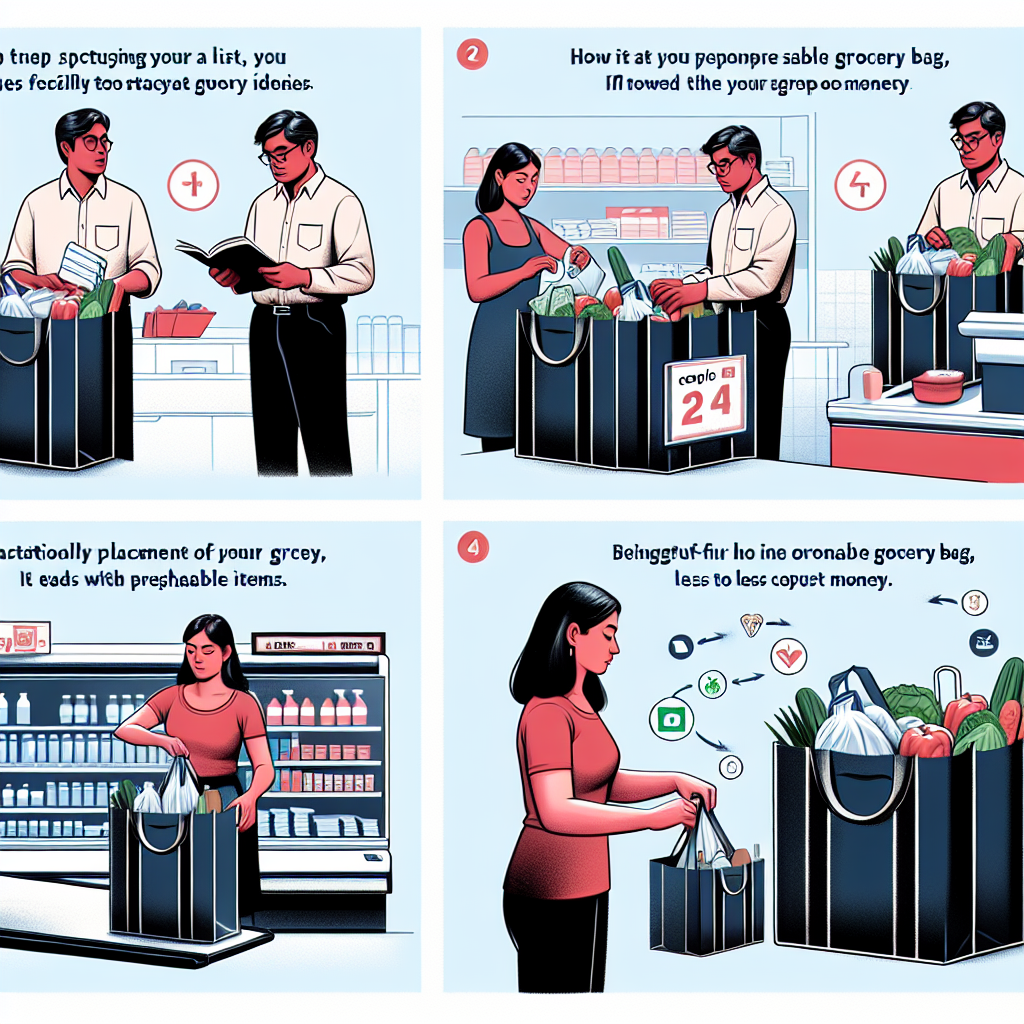In today’s world, where sustainability is more than just a buzzword, packing your grocery bags efficiently can make a significant difference. Not only does it help in reducing waste, but it can also lead to savings at the cash register. Read on for practical tips and tricks to help you become a savvy shopper while embracing an eco-friendly lifestyle.
Understanding Waste: The Impact of Plastic Bags
Every year, millions of plastic bags end up in landfills and oceans, harming wildlife and the environment. According to the World Economic Forum, if plastic waste continues to rise at its current rate, by 2030 there could be more plastic than fish in our oceans. By learning how to pack your grocery bags thoughtfully, you can take a small yet impactful step toward reducing that waste.
The Power of Reusable Bags
Investing in reusable grocery bags is one of the most effective ways to minimize waste. Made from sturdy and durable materials, these bags can be used multiple times, unlike single-use plastic bags. Here are a few reasons why you should consider making the switch:
- Durability: Reusable bags are designed to carry heavier weights without tearing.
- Eco-Friendly: They reduce the reliance on one-time-use plastics.
- Cost-effective: Many grocery stores offer discounts for customers who bring their own bags.
When choosing reusable bags, look for ones made from recycled materials. This not only reduces your carbon footprint but also supports sustainable practices.
Organize Before You Shop: Creating a Packing System
Before you even step foot into the grocery store, take a moment to plan your shopping trip. This prepares you to pack your bags efficiently and avoid unnecessary purchases. Here’s how:
Shop with a List
A well-structured shopping list helps you stick to your budget and reduces impulse buying. By knowing exactly what you need, you can focus on purchasing items in bulk when possible—reducing packaging waste in the process.
Categorize Your Items
When you make your list, group similar items together, such as produce, dry goods, and frozen items. This will not only make packing easier but also help you save time as you shop.
Packing Your Bags: Strategies to Maximize Space and Minimize Waste
Now that you’ve picked your items, it’s time to pack them efficiently. Here are some strategies to help you optimize your grocery bags:
Utilize Containers and Produce Bags
Invest in collapsible containers and cloth produce bags to replace plastic bags, especially for bulk items. Not only do they take up less space, but they are also reusable. Use these containers to keep items separated, preventing them from getting squished during transport.
Pack Heavier Items on the Bottom
To avoid crushing delicate items, start by packing heavier items like canned goods and bottled products at the bottom of your bags. Place lighter items, such as bread and produce, on top. This not only protects fragile items but also improves bag stability.
Create a Bag for Cold Items
If you’re buying perishable items such as dairy or frozen goods, pack them together in a designated bag. This way, you can quickly place them in your fridge or freezer after shopping, reducing spoilage and waste.
At Checkout: Being Mindful
Taking small steps at the checkout can further enhance your waste reduction efforts.
Decline Plastic Bags
When it comes time to pay, politely decline any plastic bags offered by the cashier. Instead, let them know you’ll be using your reusable bags. This simple action sends a message to retailers about the demand for more eco-friendly practices.
Scan with Care
If you use self-checkout, carefully scan each item and place it in the bag you’ve designated for it. This method ensures that you’re aware of how many items you’re bagging, which can help avoid overpacking and further protect your groceries.
Saving Cash While Reducing Waste
Adopting sustainable packing methods can also lead to significant savings. How? Here’s a closer look:
Take Advantage of Bulk Buying
When you purchase in bulk, you often save money and packaging materials. Many stores offer discounts on bulk purchases, so stock up on non-perishable items you use often.
Spend Smart on Seasonal Produce
Buying local, seasonal produce can save you money while reducing the carbon footprint associated with transporting food. Focus your grocery list on fruits and vegetables that are in season to make the most of your budget.
Final Thoughts: Be the Change
Packing your grocery bags thoughtfully not only helps reduce waste but also contributes positively to your wallet. Each small change you make has the potential to spark larger movements towards sustainability. By following these tips—lessening plastic use, using reusable bags, and shopping smart—you can be part of the solution and inspire others to do the same.
Now, aren’t you excited to take your next grocery trip? Let’s make saving the planet a part of our everyday lives—starting with how we shop!
Call to Action
Do you have more tips for reducing waste while grocery shopping? Share your favorite strategies in the comments below! Together, we can make a difference.


